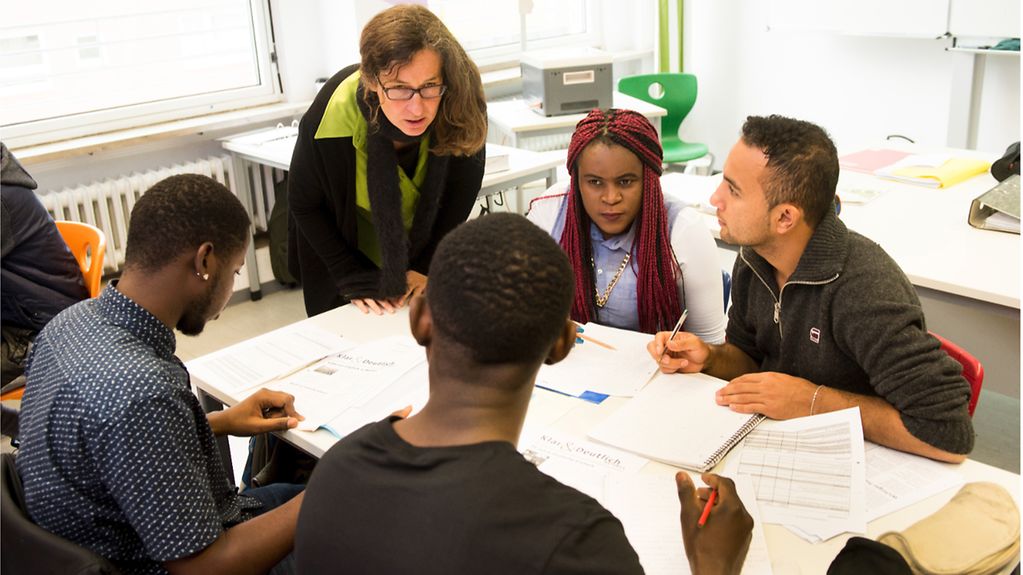Unaccompanied minors from other countries
Children and young people coming to Germany from abroad without their families are well cared for here. That is the conclusion reached by the report on the situation of unaccompanied foreign minors in Germany, now adopted by the Cabinet. The number of unaccompanied minors arriving in Germany has dropped steadily since May 2016.
3 min reading time

Most unaccompanied children and young people are highly motivated to learn German and obtain a school leaving qualification.
Photo: Tobias Hase
Last February, almost 15,000 unaccompanied children and young people from other countries were living in Germany, as well as some 24,000 young adults who originally came as unaccompanied minors. All in all, at the end of February 2019, this brought the total of individuals under the responsibility of the child and youth welfare authorities to just under 40,000. Numbers peaked in February 2016 at about 60,000.
Well cared for from the outset
Foreign children and young people who come to Germany without their families are entitled to accommodation and care appropriate for their welfare.
The rising refugee numbers as of 2014 called for a response. Consequently on 1 November 2015 the Act to Improve the Accommodation, Care and Assistance for Unaccompanied Foreign Children and Young People (Gesetz zur Verbesserung der Unterbringung, Versorgung und Betreuung unbegleiteter ausländischer Kinder und Jugendlicher) came into effect. Since then, unaccompanied minors have been distributed among the individual federal states.
Nationwide reception has proved its worth
This procedure is being responsibly implemented by the federal states and local authorities, and has proved its worth. The children and young people are generally well cared for in line with their needs by the relevant facilities. This is the conclusion reached by the report on the situation of unaccompanied foreign minors in Germany, now adopted by the Cabinet.
The report also demonstrates that the measures, services and inputs, provided within the framework of the regular child and youth welfare system, work to empower these particularly vulnerable children and young people from the outset. The services include preventive health and drug prevention measures, along with information on the legal situation and cultural background in Germany. The family background of the young people is also addressed and worked through. The aim is to enable these young people to move forward to take charge of their own lives and become integrated in society.
Highly motivated children and young people
It also becomes clear that in general unaccompanied children and young people are highly motivated to learn German and obtain school leaving qualifications. They start from very different positions, however. Some are illiterate, while others already have a high level of schooling. Various measures taken by the federal states in the field of schooling ensure that children and young people get a good start in Germany’s education system.
Associations support integration
In their integration efforts, the federal states have the support of numerous local associations and action groups. They help children and young people from other countries to find their feet soon after their arrival in Germany, make friends, get to know our culture and values, and contribute their own interests and potential.
Since the Act to Improve the Accommodation, Care and Assistance for Unaccompanied Foreign Children and Young People came into effect on 1 November 2015, the German government has reported once a year to the German Bundestag on the situation of these young people. In 2018, the main countries of origin of unaccompanied minors seeking protection in Germany were Afghanistan, Somalia and Guinea.